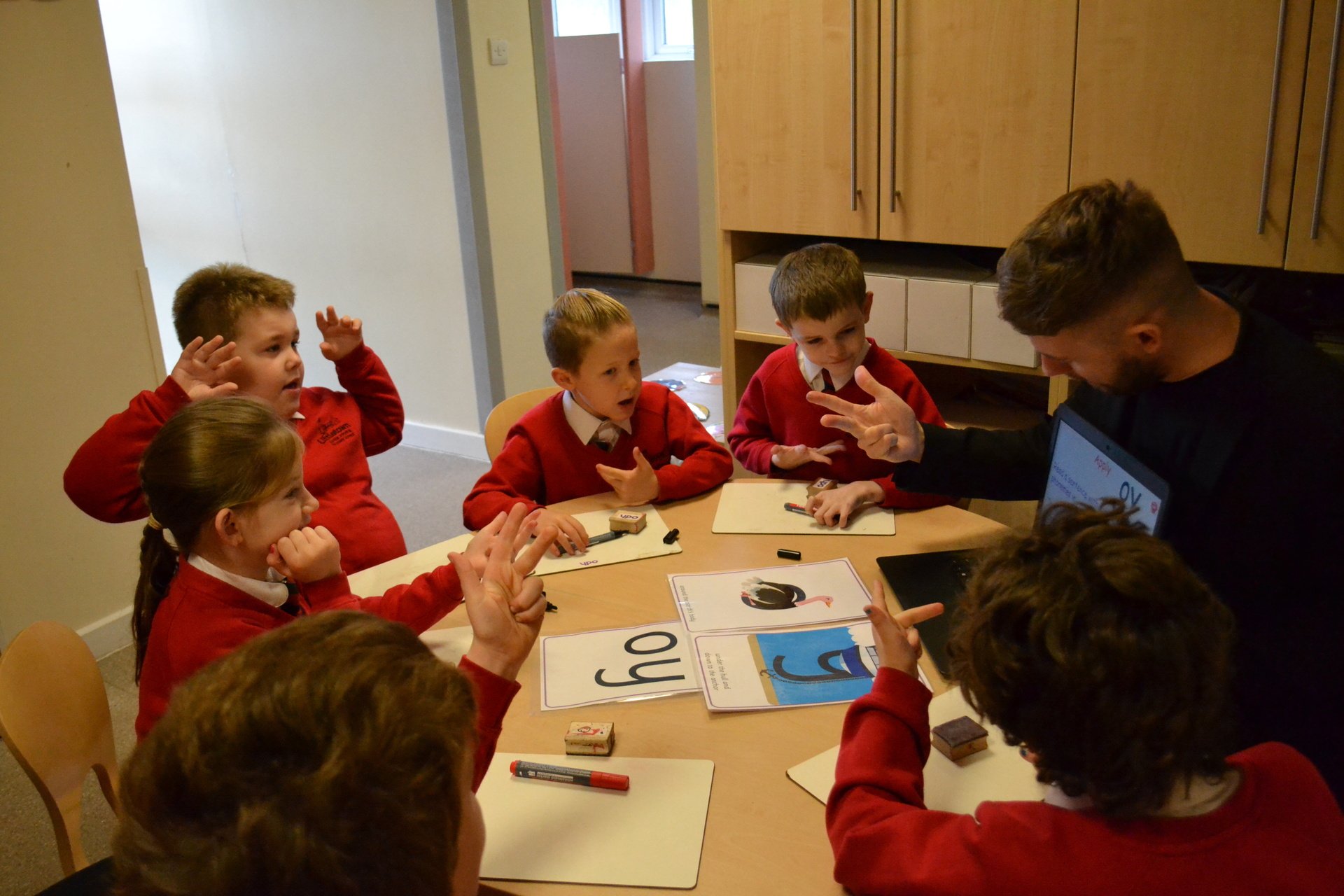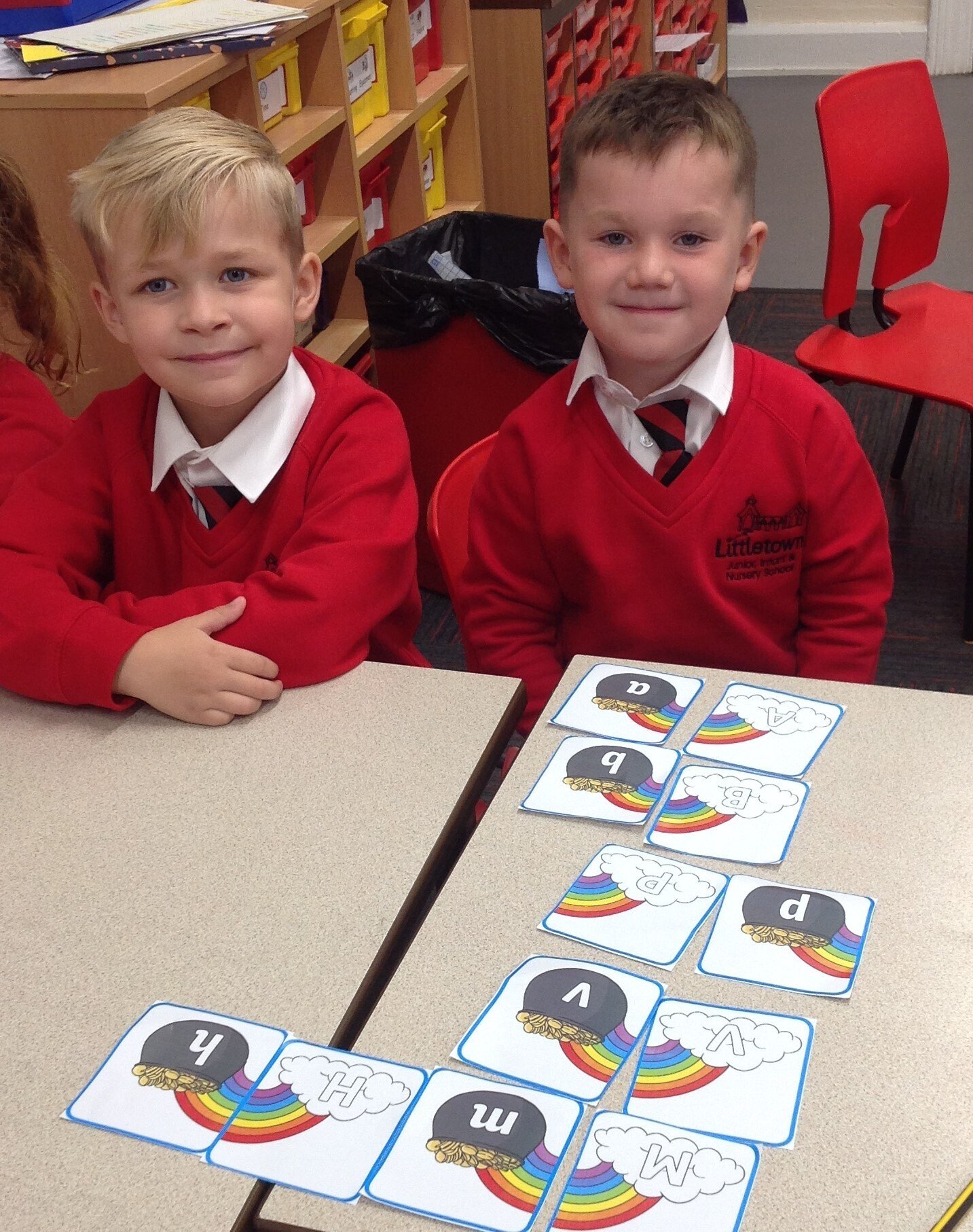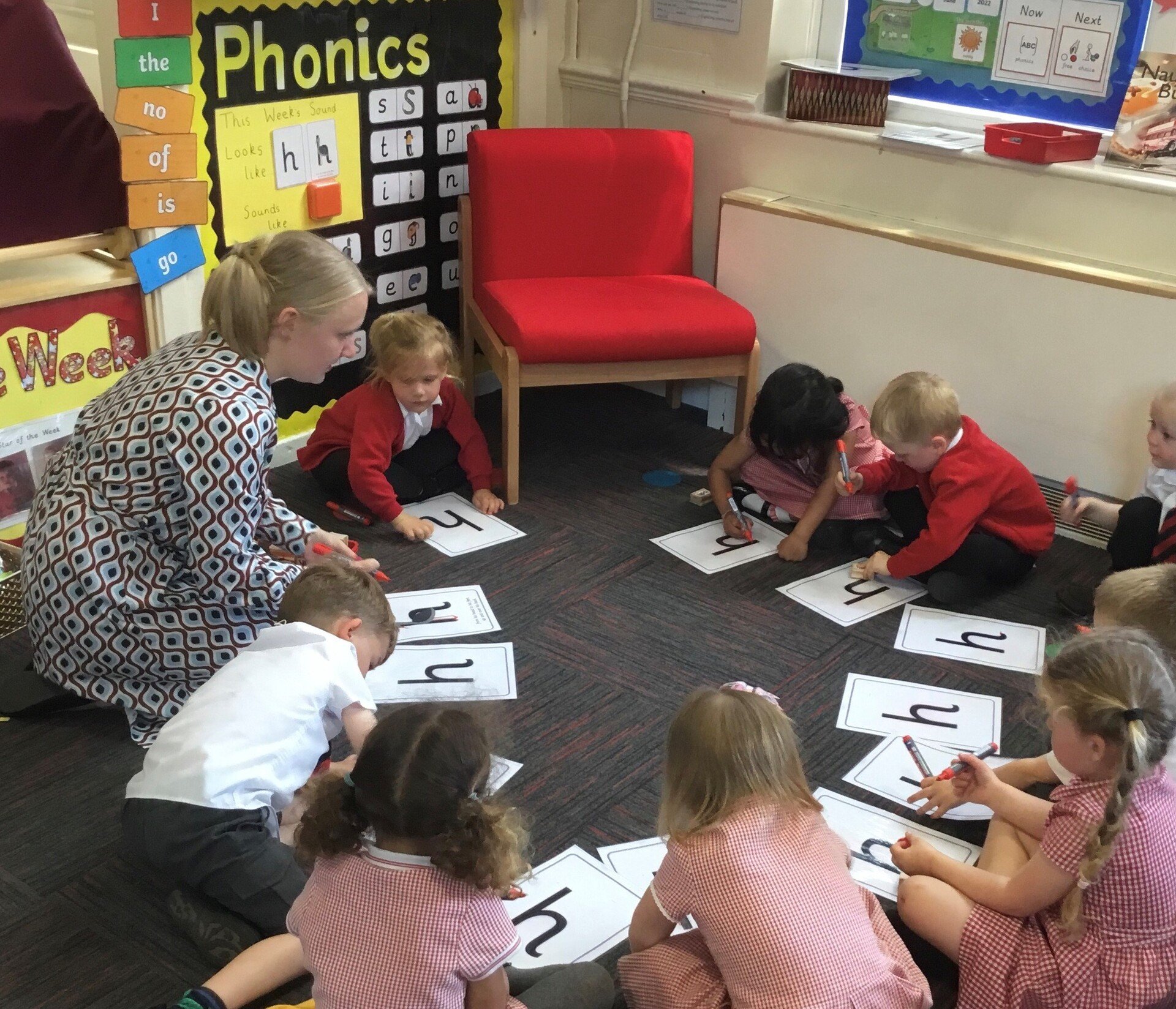Phonics
We are learning to read...
At Littletown School we follow ‘Essential Letters and Sounds’ DFE approved scheme to teach phonics. ELS was created to ensure every child can read well, quickly.
Intent
At Littletown Junior Infant and Nursery School, we are committed to ensuring that all children in our care become confident and enthusiastic readers and writers. We aim to ensure that every child, regardless of their background, ability or needs succeeds and achieves well. We believe that phonics provides the foundation of learning to make the development into fluent reading and writing easier. Phonics is the process that ensures children have the skills to break words into a sound system, building letter and word recognition. Children learn to segment words to help support their spelling ability and to blend sounds together to read words. Once phonics are learnt and children can read fluently, and at speed, they can then focus on developing their other reading skills such as comprehension and acquiring knowledge. Fluent reading skills allow access to the whole curriculum.
Implementation
|
At Littletown Junior Infant and Nursery School, we follow a validated systematic synthetic phonics programme; Essential Letters and Sounds (ELS). ELS is a method of learning which is based around letter sounds and phonics, blending them together to read and write words and using these learnt sounds in their reading and writing. Our reading strategy outlines in more detail exactly how we implement the phonics scheme in our school. |
Using this structured programme, children will learn to read effortlessly so that they can then develop their comprehension skills. The sound and letter correspondence will also help our children build as their spelling skills allowing them to focus on grammar and compositional ideas in writing. Children will learn phonics as soon as they enter school in our Nursery Stage: Daily phonic lessons become part of their everyday routine. Take a look at our Nursery long term phonics plan on the link below. Lessons are carefully structured in a repetitive way, to introduce new sounds. Children will hear the sounds, say them, see them, read the sounds in words, write the words and build new vocabulary. Modelling is a hugely important part of their learning process and all the teaching staff have been trained using ELS materials. Helen Lombard (Deputy Head teacher) is phonics lead in school, she ensures that staff feel confident with the phonics programme and ensures that the quality of the delivery in school is consistently good.
Sounds have been divided up into small groups. Children will meet a small group of sounds each week. Some revision and practise weeks are built into the programme to consolidate. Children will practise the distinct sounds and will then practise blending the sounds together to make real and made-up words.
The children will learn mnemonics and rhymes to help remember the letters and how to write them.
Once the single letter forms have been learnt, children will then move onto sounds created by two or more letters. Children will be continuously assessed throughout each week and half term. The scheme is a 'keep up' rather than 'catch up' scheme.
To help the children practise their sounds, each child will receive a reading book which matches their phonic stage. These reading books will ensure children get chance to practise the sounds they are learning, allowing them to develop speed and confidence.
At the end of Year 1, all children are tested with the phonic screening test published by the Department for Education. These tests use real words and made up words to test each child's phonological knowledge and skills. The expectation is that all children should be able to pass this test which means they know all of their phonic sounds.
Impact
We aim to ensure that all our children have the best possible start to reading. The consistent pattern of the lessons and resources, the shared practise across the staff and regular, repetitive practice will ensure that all children will achieve. This will enable our children access to a world of reading and writing; essentials skills as the children journey into Key Stage 2.
Click on the following to view the long term progression documents:
Phase 2 pronunciation
Phase 3 Pronunciation
Phase 5 Ponunciation
 |
 |
 |





















